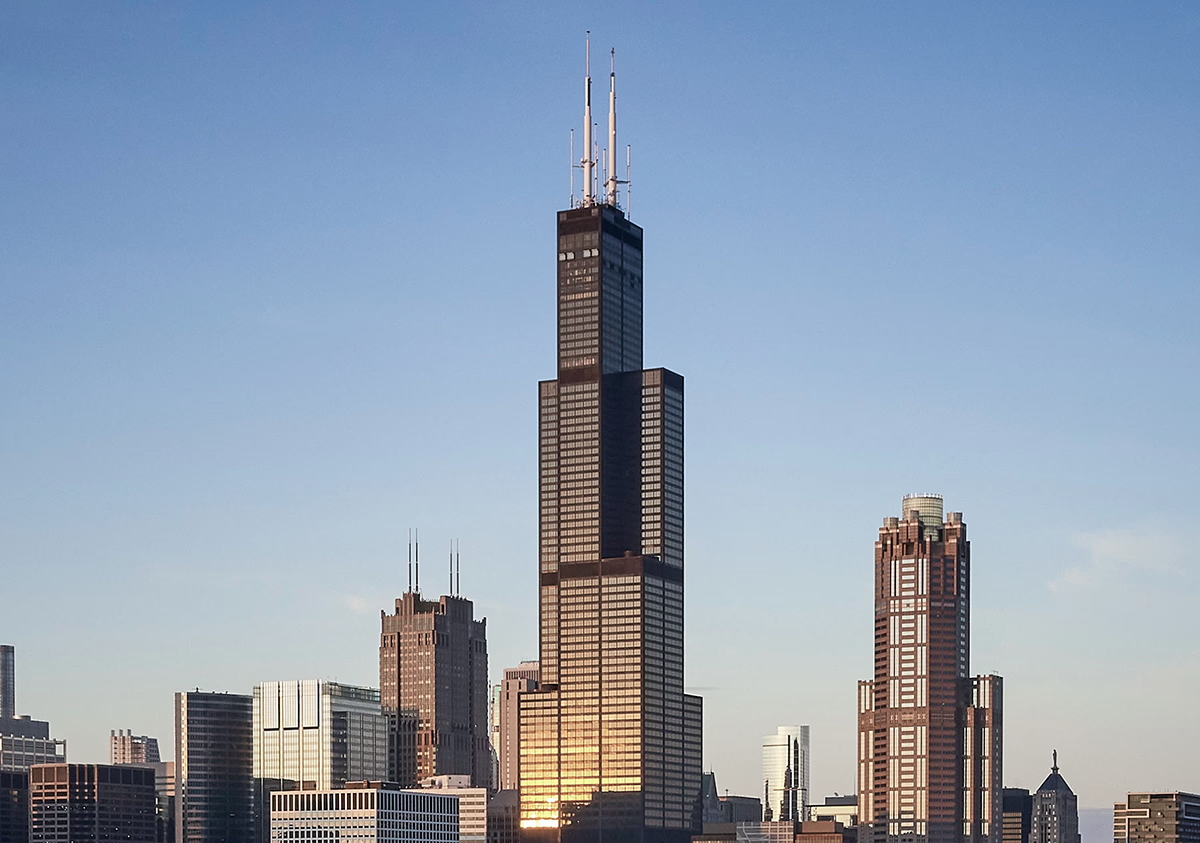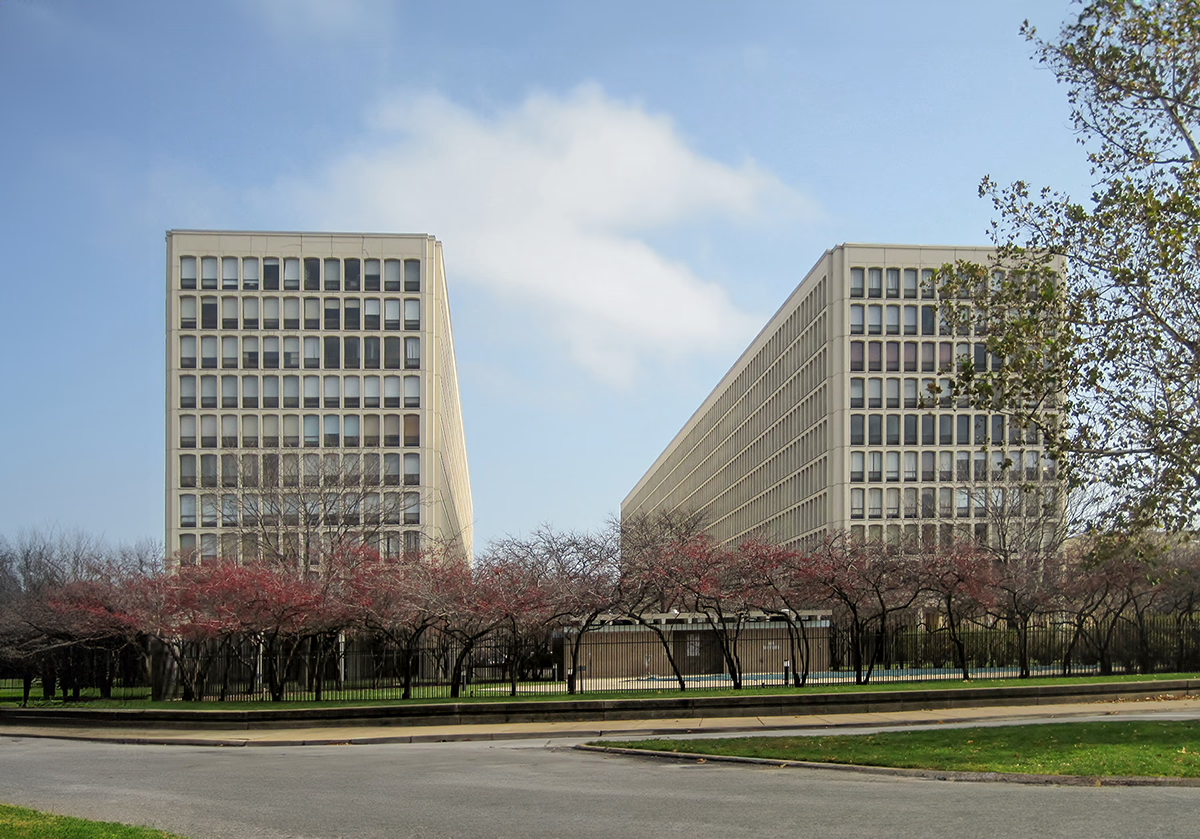Willis Tower vs University Apartments


Comparing the Willis Tower and the University Apartments is interesting because they both rise in Chicago, IL, yet they were conceived by two different design teams, Skidmore, Owings & Merrill and I. M. Pei, and were completed at different points in time. They were finished more than a decade apart.
This contrast within the same city allows us to see how different creative minds interpreted the evolving needs of Chicago across time.
Let's take a closer look!
Height & Size
The Willis Tower is clearly the larger tower of the two, both in terms of height and number of floors. It rises to 1450ft (442m) with 108 floors above ground, while the University Apartments reaches 308ft (94m) with 10 floors above ground.
Of course, each project may have faced different briefs or regulatory constraints, which we don't really know about and could also explain the outcome.
Architectural Style
Both the Willis Tower and the University Apartments were designed in line with the aesthetic conventions of the International Style style.
The Willis Tower was designed at a moment when the International Style style was already in decline, making it more of a lingering expression of the movement. In contrast, the University Apartments style was already in decline, making it more of a lingering expression of the movement. In contrast, the University Apartments was built when the style still carried greater cultural weight.
Uses
The Willis Tower is primarily commercial, while the University Apartments is primarily residential.
The University Apartments offers 540 residential units.
The University Apartments also provides 220 parking spaces.
Structure & Facade
Both towers share the same structural solution, a Frame system.
A frame structure uses a grid of columns and beams to carry the building's loads. This frees the walls from structural duties, allowing for flexible floor plans and larger windows.
However, when it comes to the facade, both buildings use different approaches. The Willis Tower uses a Curtain Wall facade, while the University Apartments uses a Window Wall facade.
A Curtain Wall facade like the one seen in the Willis Tower uses a lightweight glass curtain wall hung from the structure, while a window-wall facade like the one seen in the University Apartments uses panels fitted between floor slabs, leaving slab edges visible.
| Willis Tower | University Apartments | |
|---|---|---|
| Skidmore, Owings & Merrill | Architect | I. M. Pei |
| 1970 | Construction Started | 1959 |
| 1974 | Year Completed | 1961 |
| International Style | Architectural Style | International Style |
| Commercial | Current Use | Residential |
| 108 | Floors Above Ground | 10 |
| 4 | Floors Below Ground | 1 |
| 442 m | Height (m) | 94 m |
| 104 | Number of Elevators | 8 |
| Frame | Structure Type | Frame |
| Steel | Vertical Structure Material | Concrete |
| Concrete | Horizontal Structure Material | Concrete |
| No | Facade Structural? | Yes |
| Glass, Steel, Aluminum | Main Facade Material | Glass, Concrete |
| Fazlur R. Khan, Srinivasa Iyengar | Structural Engineer | August Komendant |
| IL | State | IL |
| Chicago | City | Chicago |
| 233 S. Wacker Drive | Address | 1400 1451 E.55th Street |